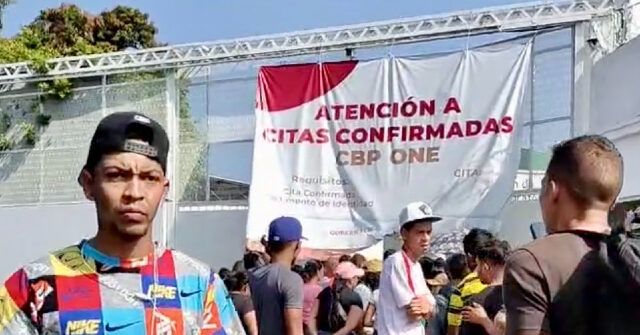In Tapachula, Chiapas, a daily scene unfolds as hundreds of migrants gather outside the National Migration Institute (INM) office, forming long lines that stretch out as they wait for the opportunity to present their paperwork. This wait is crucial as they seek travel permits that will enable them to move freely throughout Mexico for a limited time. The process has become a vital step for many migrants aiming to reach the United States, highlighting the challenges they face even before crossing the border.
To obtain the travel permits, migrants must have a previously confirmed appointment via the CBP One app and provide valid identification. This requirement adds an additional layer of complexity to their situation, intensifying the urgency for many to secure their permits. As they endure hours of waiting in line, the stress and uncertainty of their journey continue to mount, reflecting the precarious nature of their circumstances and the lengths they are willing to go to achieve their dreams of a new life.
The prolonged wait times and the growing frustration with the bureaucratic process have prompted many migrants to band together and form caravans as they traverse southern Mexico. These caravans are clusters of individuals traveling collectively in hopes of reaching their destination in a safer and more organized manner. Contrary to reports in some U.S. media, these caravans remain intact, steadily moving towards Mexico City and signaling a sustained effort among migrants to navigate their journey despite logistical hurdles.
As the migrants advance through Chiapas and towards major transit points, their goal is to reach the U.S. border before Donald J. Trump assumes office. Many migrants harbor concerns about the potential changes in immigration policy that a new administration may bring, particularly regarding asylum processes. This fear propels them to move quickly, adhering to the belief that current asylum-request systems may be drastically altered or even eliminated.
The INM officials maintain that caravans cannot be entirely stopped, as many migrants possess the necessary travel permits. Their presence is monitored by both INM agents and local authorities in Southern Mexico, tasked with managing these groups while attempting to minimize disruptions to local communities. This underscores a balancing act between the rights of migrants to seek passage and the obligations of authorities to maintain order and support the local populace.
Contributions by journalists such as Ildefonso Ortiz and Brandon Darby from Breitbart Texas provide insight into the ongoing situation in Tapachula. Recognized for their investigative work through the Cartel Chronicles project, the coverage aims to shed light on the complexities faced by migrants during their journey, emphasizing the broader implications of their plight in the context of American immigration policy and regional stability.

